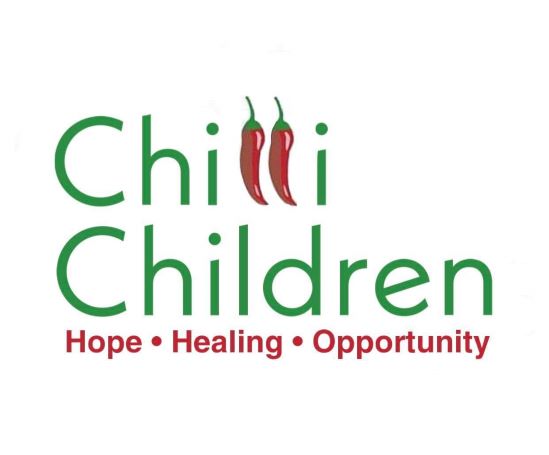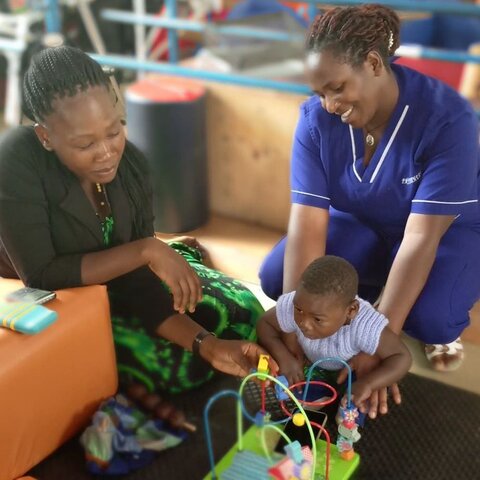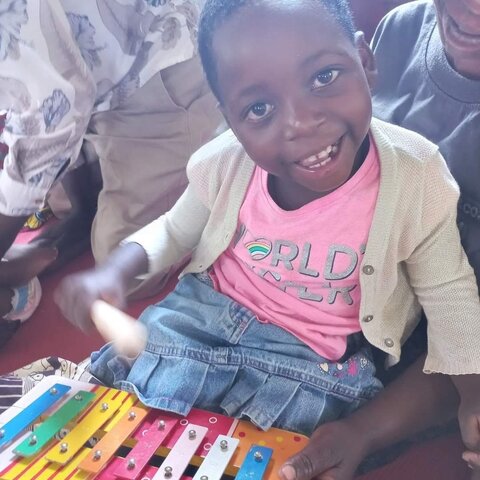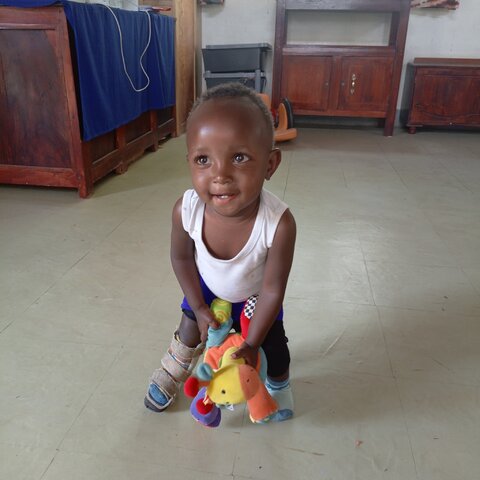Learning Life Skills Clinics

What happens at a clinic?
At the clinics, children with disabilities are taught essential life skills, from sitting, standing and walking, to eating and drinking, to head and neck control. There are some therapeutic toys to play with to develop their cognitive, communication and social skills. Staff also show caregivers how to implement and practice various exercises/skills in their home setting as well as in the clinic setting. For example, they may show a caregiver how to replicate a ‘prone board’ using local materials found around the home. Where possible, Flavia also visits families in their own homes to give advice and support.
As well as learning therapy and life skills, the staff are available to counsel caregivers who may be struggling to come to terms with their child’s condition, and also to counsel parents through the challenges and social perceptions surrounding the disability of their child.
Other field staff may attend a clinic to talk to the families about chilli growing for income generation and give them some small chilli plants with which to begin.
Who are the clinics for and who runs them?
The clinics are for children with neurological disorders, learning disabilities or cognitive impairment, for example conditions such as cerebral palsy, hydrocephalus, down's syndrome and microcephaly.
Flavia may also work with children with orthopedic conditions, encouraging them to walk using a walking frame or crutches, or other appliances.
All clinics are run by Flavia with the support of other Project staff.
Where are they held?
These clinics take place at the Project’s Rehabilitation Centre located in the grounds of North Kigezi Diocese, Rukungiri.
Why do we need clinics?
The children learn essential life skills which can help them to gain some independence. They also have the opportunity to socialise with other children - something which sadly may not happen when they are at home, as many are locked away or hidden due to shame or fear.
As they grow and develop the children are encouraged to do as much as possible for themselves. This is not only important for their physical health but also their mental, social and emotional health.
The caregivers receive teaching, support and encouragement from Project staff and also other caregivers in similar situations. Often, when in their villages, caregivers can think that they’re alone with their struggles and challenges, feeling isolated and often shunned by neighbours or family members. Clinics build community and friendships among caregivers.
Clinic Aims
Our aim for learning life skill clinics is to continue to pursue our vision of hope, healing and opportunity for the beneficiaries of the Project.
Hope - our prayer is that all beneficiaries leave the clinics feeling more hopeful than when they came, whether due to fellowship, their child making progress or a listening ear.
Healing - our aim is that all children who attend clinics make physical or cognitive progress. Tiny improvements become small steps which become the change between seeing the world laying down vs seeing the world sitting upright, or between being fed vs being able to eat independently.
Opportunity - the clinics give beneficiaries the opportunity to learn, grow, develop, build friendships and share advice and encouragement. They also give the opportunity to learn about chilli growing as a means of generating some much needed extra income.




.jpg)

